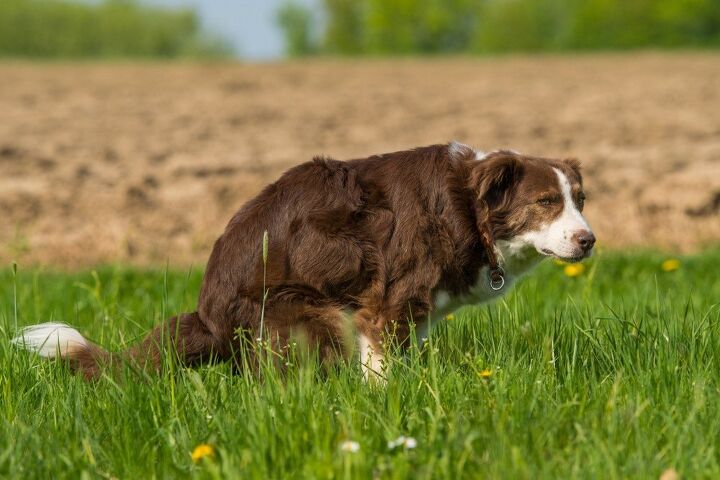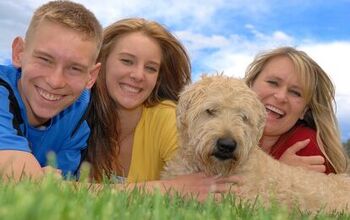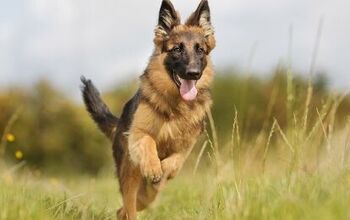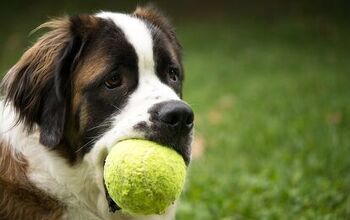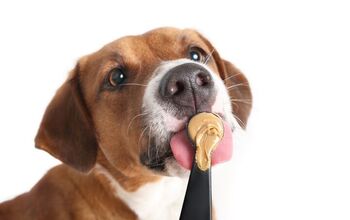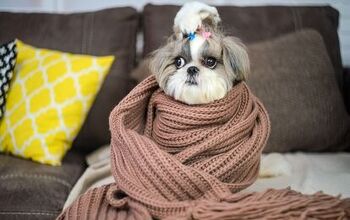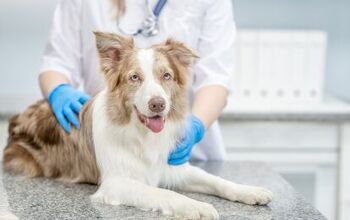All About Bowel Obstruction in Dogs

Dogs have a tendency to eat without thinking. They’ll put anything in their mouths that will fit, and they don’t seem to have any qualms about eating things that aren’t actually food. As much as you try to keep your dog away from things that he shouldn’t be eating, you can’t watch him every second of the day and there will come a time when he eats something he shouldn’t.
Unfortunately, many dogs who eat things they shouldn’t be eating develop bowel obstructions, also known as intestinal blockage. This can be very serious and should not be ignored. Keep reading to learn more about bowel obstruction in dogs and how to handle it.
Related: The Perfect Poop And Why It’s So Important
Your dog’s daily diet shouldn’t cause any problems with his digestion – it is the other things he eats that could cause a problem. In the simplest of terms, bowel obstruction is caused by your dog swallowing something that is too large to pass through his intestinal tract. Because the item is too large, it gets stuck somewhere along the way. This may not be an immediate problem, but over time it can cause food to back up in the GI tract and may lead to symptoms such as the following:
- Lethargy
- Weakness
- Diarrhea
- Vomiting
- Loss of appetite
- Dehydration
- Bloating
Some of the items most likely to cause a bowel obstruction in dogs include socks, rocks, and bones. In some cases, bowel obstruction is not caused by something your dog ate. It can also be caused by tumors, gastrointestinal inflammation, intestinal parasites, and anatomical abnormalities. Having an intestinal parasite infection can also increase your dog’s risk for developing a bowel obstruction, even if he doesn’t eat something large.
Related: How to Read Your Dog’s Poop
The first step in treating a bowel obstruction is to try to figure out what your dog ate that is causing the problem. If you don’t actually catch your dog in the act this can be tricky, but it will help your veterinarian diagnose and treat the problem if you have an idea what is causing the obstruction. In order to make a diagnosis, your vet may need to do an endoscopy – a procedure in which a small camera is inserted through the mouth into the stomach. This procedure can be used to biopsy masses as well and to retrieve small foreign bodies.
In terms of treatment, it all depends on the size of the object your dog swallowed, the amount of time that has passed since, and its location in the GI tract. If you catch it right away, your vet may be able to induce vomiting to remove the item before it gets stuck in the intestines. In other cases, surgery may be required to remove the object.
Bowel obstruction in dogs is no laughing matter. If your dog develops any of the symptoms above, or if you suspect that he’s eaten something he shouldn’t, be proactive in taking him to the vet. It’s always better to treat the problem early than to let it get worse.

Kate Barrington is the loving owner of two cats (Bagel and Munchkin) and a noisy herd of guinea pigs. Having grown up with golden retrievers, Kate has a great deal of experience with dogs but labels herself a lover of all pets. Having received a Bachelor's degree in English, Kate has combined her love for pets and her passion for writing to create her own freelance writing business, specializing in the pet niche.
More by Kate Barrington



